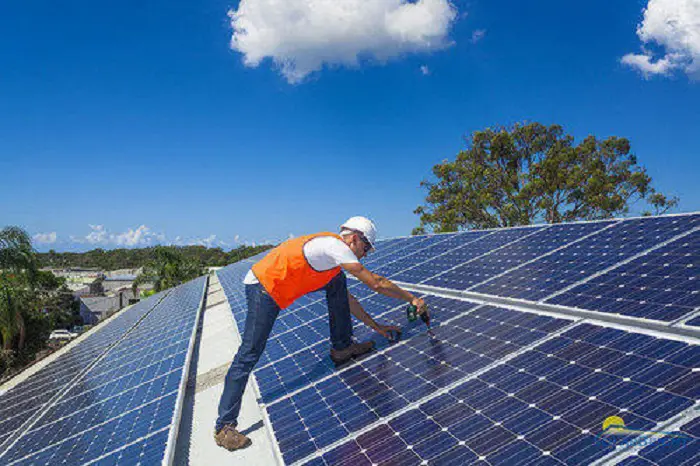The government of Botswana through the Ministry of Mineral Resources, Green Technology and Energy Security (MMGE), recently launched a net metering scheme for rooftop PV systems called the Rooftop Solar Programme (RTS) in order to create an enabling environment for end users who can generate their own electricity and sell to Botswana Power Corporation (BPC) and also to improve the country’s PV installed capacity which was at 3MW at the end of last year.
Supported by the United States Agency for International Development (USAID) the scheme will run for 3 years and is expected to generate 10MW of PV power in the first 12 months. According to BPC, this electricity will be the surplus production of solar photovoltaic systems installed by the population; of the 10MWp, 2MWp will come from domestic consumers and 8MWp from commercial and industrial consumers. The maximum capacity for a single domestic consumer is 35kWp, while for commercial and industrial consumers it is 1MWp.
Also Read: Kita solar power plant in Kayes region of Mali has been commissioned
Eligibility
To be eligible for the scheme, an individual will need to be a BPC customer, have title to their rooftop solar system, and have a meter that will measure the import and export of electricity. Successful owners will sign an interconnection agreement and/or a 15-year licence. The utility will pay about US $7.24 per kWh of electricity, the equivalent of 81.51 Botswana pulas.
Interested individuals or companies will have to submit their solar projects before 30th November 2020 via an online application directly accessible on the BPC website. According to BPC, the system will operate on a “first come, first served” basis.
Power demand in Botswana
About 29% of power demand in Botswana currently, is covered by domestic coal power generation, which comes from the 600MW coal-fired power plant known as Morupule B. The remaining 71% comprises of power imports from her neighbor South Africa. However, due to several technical problems with the Morupule B plant, the country is currently suffering from chronic power shortages.
